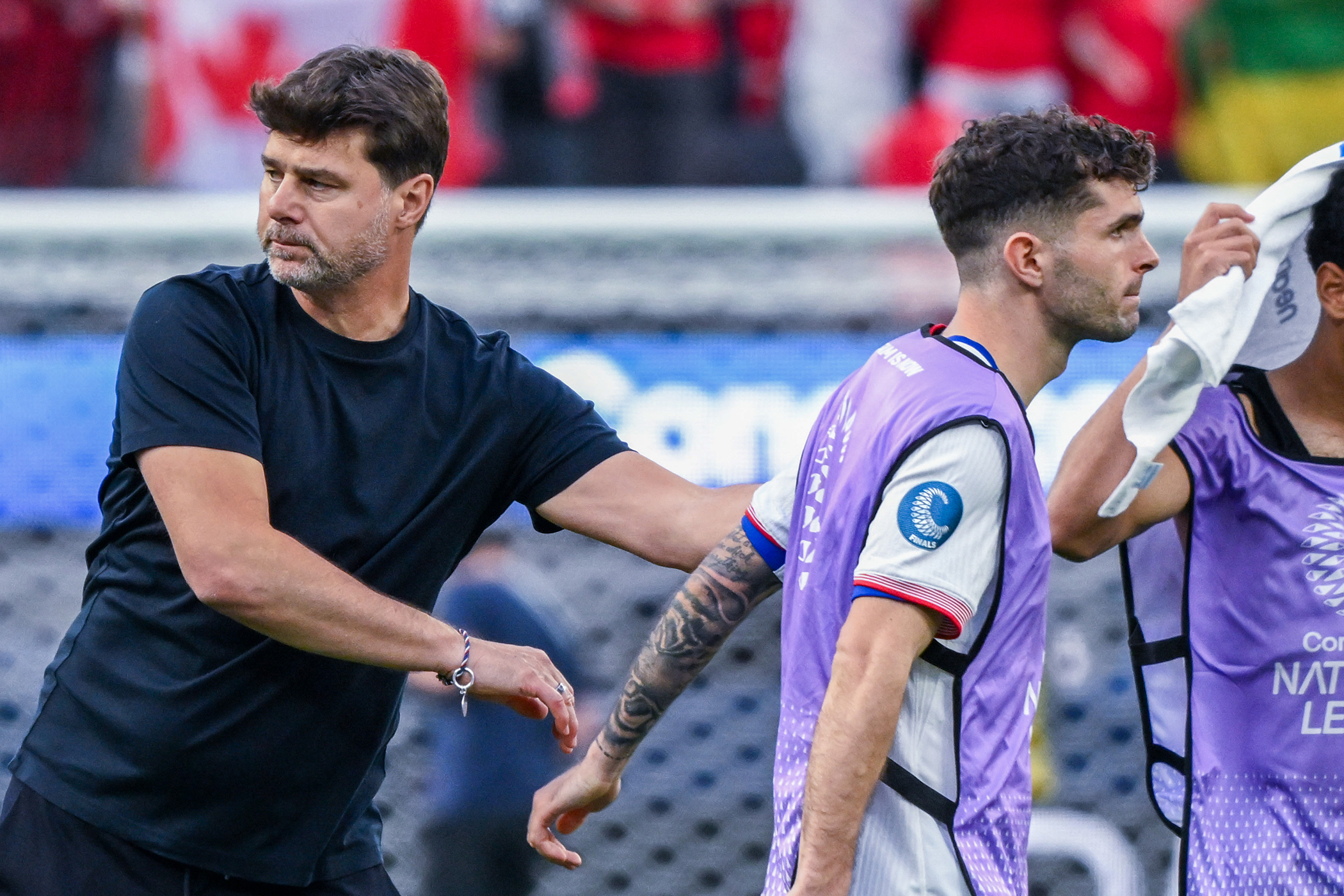The timing was not ideal. Early in June, with a year to go before the start of the World Cup, the United States should have been awash with excitement, eagerly anticipating its great coming out party as a fully-fledged football nation. Instead, the team were descending into a toxic blend of acrimony and panic.
Not, as is traditional for World Cups, for logistical reasons. The stadiums are built. The tourist infrastructure necessary to handle the influx of fans is well established, although the exorbitant cost of tickets had not yet been revealed and Donald Trump’s threats to remove games from host cities that attracted his ire were still implicit.
The issue instead was on the field. The United States’ national team were in disarray, in the middle of a run of four straight defeats, losing not only to Switzerland and Turkey but to Canada and Panama. The coach, Mauricio Pochettino, was at loggerheads with the country’s only genuine star, Christian Pulisic. There was a genuine risk that the World Cup would end in humiliation.
Pochettino was appointed in September last year with the single purpose of avoiding that outcome. His arrival was treated as a considerable coup by US Soccer, the governing body: he was, as the organisation’s president Cindy Parlow Cone had said, “a world-class coach” who had achieved “success at the highest levels of the game”.
It was so keen to hire a manager of his pedigree – a Champions League finalist, an established presence in the Premier League, his résumé garlanded with the imprimatur of Chelsea, Tottenham and Paris Saint-Germain – that it persuaded the hedge fund billionaire Ken Griffin, as well as a number of commercial partners, to underwrite his salary.
By the end of the summer, the mood had darkened. Pochettino’s team had required penalties to beat Costa Rica in the Gold Cup quarter-finals, squeezed past Guatemala in the semis and then lost to Mexico in the final.
There were doubts, too, over how committed the Argentinian was to his role. He was pictured having coffee with Daniel Levy, his former employer at Spurs, at a cafe in Hadley Wood in March. He was, perhaps, a little too honest in interviews – particularly with the British media – in admitting that he would one day like to return to the Premier League; unintentionally, he gave the impression that his mind was already drifting to what might come next. (This remains a problem: he told the BBC earlier this month that he was “missing” English football.)
Most concerning, though, was not just the state of his relationship with Pulisic, but how public their apparent estrangement had become.
At the start of the summer, the Milan forward told Pochettino and his staff that he would prefer not to play in the Gold Cup so as not to risk fatigue. He would, however, deign to play in the United States’ two warm-up games before the tournament. Pochettino rejected that offer, informing Pulisic that he wanted one squad for the whole summer program.
The incident split the tightknit and often febrile American soccer fraternity. Landon Donovan, the former captain, seemed to take Pochettino’s side, criticising Pulisic’s decision on his podcast. In response, the player went on a podcast co-hosted by the former US goalkeeper Tony Meola, to put his side of the story. He revealed in the course of that appearance that he and Pochettino had not spoken since that initial, awkward conversation.
Newsletters
Choose the newsletters you want to receive
View more
For information about how The Observer protects your data, read our Privacy Policy
It seemed possible, at that stage, that the US might head to the World Cup without their talisman. And whether Pulisic made it or not, there was a very real prospect that the United States’ stay at their own tournament would be brief and unhappy.
Three months on, that period looks like the nadir. Pochettino’s last three games have been more positive: victories against Japan and Australia and a creditable draw with an Ecuador team who performed better in qualifying than Brazil, albeit one missing Moisés Caicedo and Piero Hincapié. Confidence remains fragile, but there is at least some reason to hope.
Pochettino’s explanation for the shift is simple. His first year in charge, he told the Philadelphia Inquirer earlier this month, was hampered by his inability to gather together a consistent group of players. “In every single [international break], September, October and now November, the roster was always different,” he said. “Sometimes we’d have some players and not others, and then different players would come back.”
Rather than focusing on results, he used that time to focus on the team’s culture. He borrowed a quote introduced to him by Dan Cathy, the chairman of the fast food outlet Chick-Fil-A, to instil in his ever-changing squad the need to have a set of consistent values.
The phrase – “culture eats strategy for breakfast” – seems to have struck a particular chord with the Argentinian, encapsulating a message he had been attempting to transmit from his first encounter with the players. He feels at last that they have taken it on board. That extends to Pulisic, recalled to the squad in September and now adopting a different tack. “There’s probably not as much drama as you guys think there is,” he told the media after his return.
Pochettino’s mood – when he is not reminding everyone of how much he would relish a third tilt at the Premier League – is now more chipper. His job, over the next seven months, is to make sure his players know what is awaiting them. “We had the possibility to bring all the players we can, to try to know them and for them to know us,” he told the Inquirer. “Now it is about [creating] emotions. It is your opportunity. You have 90 minutes. You need to give everything you have, in your body, in your blood, to try and win.”
Photograph by Shaun Clark/ISI Photos/USSF/Getty Images for USSF



